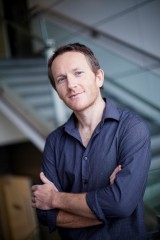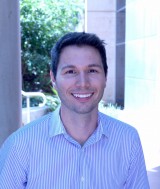
In 2015 we welcomed three new members to the EMCR Forum Executive.
The Forum Executive is an evolving collection of early- and mid-career researchers from around Australia representing all fields of scientific endeavour. The Forum is always looking for enthusiastic EMCRs who are passionate advocates for science and eager to represent the interests of all EMCRs. A call for new members will be advertised towards the last quarter of 2015. Keep following EMCR Pathways for an announcement in the September issue, or follow us on Twitter @EMCRForum.

Dr Adrian Carter is a Senior Research Fellow at the Monash Clinical and Imaging Neuroscience, School of Psychological Sciences, Monash University. His research examines the impact that neuroscience has on understanding and treating addiction and other compulsive behaviours. This includes the impact of neuroscience on our notions of agency, identity and moral responsibility; the use of coercion and the capacity for voluntary control of addictive or compulsive behaviours; and the use of emerging technologies, such as deep brain stimulation and brain imaging, to treat addiction.
After completing his PhD at the Queensland Brain Institute (2009), Dr Carter was awarded an NHMRC Postdoctoral Fellowship (2010–2014). Dr Carter is currently funded by an ARC Discovery Early Career Award (2014–2017). He received the Australasian Professional Society of Alcohol and Other Drugs Early Career Award for Excellence in Research and Science (2012), the Australian National Drug and Alcohol Award for Excellence in Research (2010) and The University of Queensland Dean’s Award for Outstanding Research Higher Degree Theses (2010). He has published two books, including Addiction Neuroethics: The Promises and Perils of Addiction Neuroscience (Cambridge University Press, 2012). Dr Carter has over 80 publications, including reports for the World Health Organization (WHO), the European Monitoring Centre for Drugs and Drug Addiction, and the Australian Ministerial Council on Drugs Strategy. He has been an advisor to the WHO and United Nations Office on Drugs and Crime (UNODC) on the use of coercion in drug treatment and the ethical treatment of opioid dependence.

From Edinburgh, Scotland, Michael is currently a postdoctoral research fellow at the Australian Institute for Bioengineering and Nanotechnology (AIBN) at the University of Queensland. His research is focused on understanding biomaterial tissue mechanics for application to novel micro-devices for drug and vaccine delivery. Specifically, he employs mechanical engineering testing techniques to understand how to better design devices for functional interaction with epithelial tissue. He earned his MEng (Hons) in Aeronautical Engineering from the University of Glasgow in 2007, followed by a PhD in Biomedical Engineering at the University of Queensland’s AIBN in 2012. He then joined a start-up company working to translate a medical device from laboratory testing to human clinical trials, which was built upon the devices that he was working on during his PhD. His focus within the company was on engineering a device for scale up to human, performing a range of pre-clinical trials. At the beginning of 2014 Michael returned to an academic research role at the University of Queensland where he continues to work on novel biomedical device research, with a keen focus on translatable technologies. His goal is to be able to expand understanding of biological interactions for microdevices and subsequently apply these with advanced manufacturing techniques for rapid translation of low cost healthcare.

Roslyn is a Research Scientist with IBM Research—Australia. As an applied mathematician, Roslyn works with inter-disciplinary teams across problems in the natural resources and healthcare areas. In 2014 Roslyn was awarded the IBM Client Value Outstanding Technical Achievement Award. Roslyn completed her PhD studies through UNSW Canberra in 2010, where her research into the critical times of heat and mass transfer through multiple layers was jointly awarded the Ria de Groot prize for the best female postgraduate student. Roslyn then took up a position as a Research Fellow with the National Centre for Epidemiology and Population Health at the Australian National University. At NCEPH, Roslyn’s work focused on informing policy and practice through the mathematical modelling of infectious diseases. In December 2011 Roslyn was awarded a four year University of Newcastle Postdoctoral Research Fellowship to continue her work in infectious disease modelling, before joining IBM Research—Australia in May 2014. Roslyn’s infectious disease modelling work has ranged from methodological contributions to working on multidisciplinary teams for specific diseases, including tuberculosis, dengue fever, influenza and Ebola.
Roslyn has been heavily involved in the Australian and New Zealand Industrial and Applied Mathematics professional body, having served on the national executive since 2010, and as the Early Career Representative since 2013. Roslyn has made significant contributions to the organisation of six conferences, including chairing an international workshop on infectious disease modelling in Newcastle. She has been instrumental in creating opportunities for early career mathematicians, having successfully advocated for the inclusion of a research student representative on the national executive of ANZIAM, and the co-location of the AMSI Early Career Research Workshops with the ANZIAM conference. Roslyn is also involved in mathematics outreach activities, including contributing to the design of a maths-based problem for the Science and Engineering Challenge, and having spoken on 2NURFM on several occasions about interesting maths problems.
© 2026 Australian Academy of Science